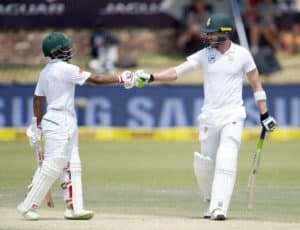SA Rugby should leave Super Rugby in 2020, but remain part of the Rugby Championship, writes SIMON BORCHARDT.
History was made last Friday night when the Cheetahs became the first South African team to play a match in the expanded Pro14, a tournament that had previously only involved sides from Ireland, Wales, Scotland and Italy. The following day, the Kings joined the European party.
After another underwhelming Super Rugby season that seemed to drag on forever, watching SA teams take on new opposition was a real treat.
The Cheetahs played in front of a small but passionate crowd in Belfast against an Ulster team that included South Africans Jean Deysel, Marcell Coetzee and Louis Ludik, while the Kings took on the champion Scarlets in Llanelli. The hosts won both matches comfortably, but it was still a memorable weekend for South African rugby, which took its first steps into Europe.
Both SA teams should improve as the season progresses, with the Kings having to effectively start again from scratch after Super Rugby, so talk that the Pro14 organisers have made a mistake by expanding are premature. Let’s give it time.
Before the Pro14 kicked off, CEO Jurie Roux reaffirmed that SA Rugby remained committed to Sanzaar. But if South Africa’s Pro14 venture is successful, it would not be at all surprising to see our remaining four Super Rugby franchises going north in 2020 when the current Sanzaar broadcast deal expires. In fact, two of those franchises reportedly wanted to join the Cheetahs and Kings in the Pro14 for this season when they heard about the money involved.
Having all six South African franchises in a Pro18 or Pro20 would make sense, and not only for financial reasons. Long flights Down Under for two or three Super Rugby matches would be a thing of the past, and European games are in a similar time zone to South Africa, which is good for SuperSport.
Some think South African rugby would be weakened if all our franchises no longer faced New Zealand opposition, but I disagree. If our Pro14 teams were eligible to qualify for the European Champions Cup and the second-tier Challenge Cup, they would get to test themselves against Europe’s best clubs, which are packed with quality players from both hemispheres. Of SA’s six franchises, only the Lions could realistically expect to beat European champions Saracens if they met tomorrow.
However, it would be in the Springboks’ best interests to stay in the Rugby Championship rather than join an expanded Six Nations, even though the latter would offer less travel, matches in a similar time zone and presumably more broadcast revenue.
While the European Champions Cup has surpassed Super Rugby as the world’s premier club/franchise tournament, the Rugby Championship remains a better competition than the Six Nations.
A big reason for this is that the Sanzaar tournament includes the All Blacks, who continue to raise the bar and force their opponents to up their game or risk falling further behind.
The Boks currently play the All Blacks twice a year, home and away, but there’s no guarantee they would continue to meet as often if they left the Rugby Championship to join an expanded Six Nations. England, for example, have not played New Zealand since 2014, and are only scheduled to meet them again in 2018.
If the Boks are to close the gap on the All Blacks, and hopefully one day win as many matches against them as they lose, they need to test themselves against them regularly. The Rugby Championship allows them to do that.
By keeping the Boks in the southern hemisphere showpiece, and having all our franchises in Europe, SA Rugby really could have the best of both worlds.
Photo: Phil Walter/Getty Images





